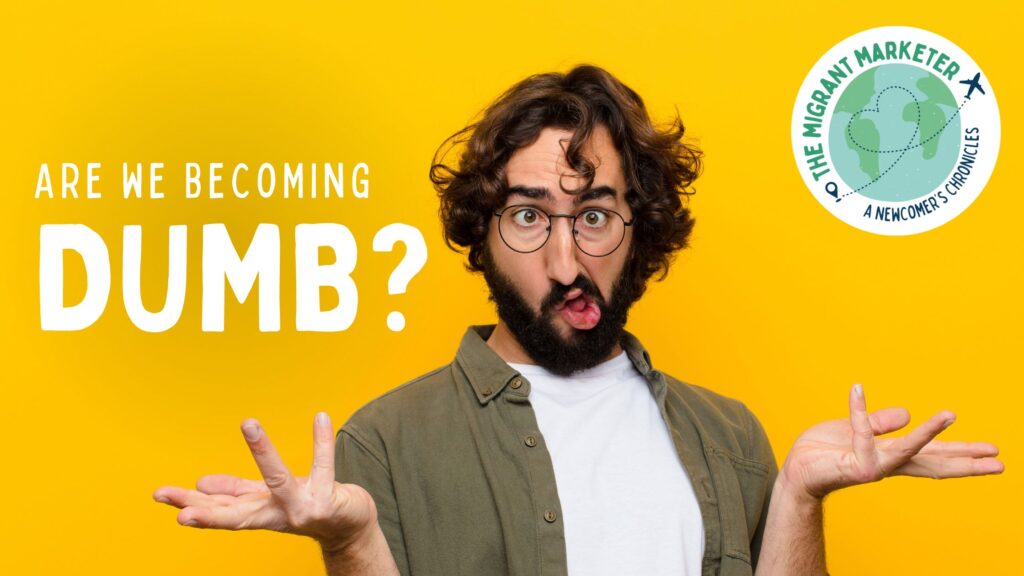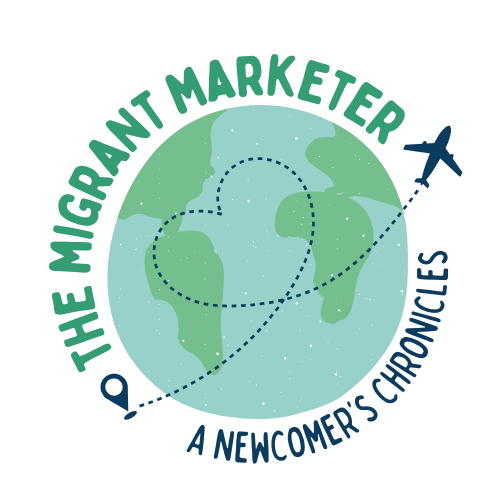
What do I mean by “do migrants lose knowledge”? First of all: boo – such an uninteresting title, but this smarty pants cares about SEO. For those who don’t know, I am a Digital Marketer whose path turned strange as I moved to Europe and had to start working as a housekeeper. I carry this role with pride since it’s feeding my family for now, but I couldn’t help to think: WHAT IF I LOSE MY NINJA MARKETING STRATEGY SKILLS?
It’s a true fear right there, and if you’re wondering the same, whether you are working as a waiter, warehouse staff or Uber driver in the First-World Country of your choice, let me tell you, you are not alone. Yes, yes, you never know what life has for you around the corner, hope is the last thing you lose, blah blah blah, but let’s get to the REAL facts. Let’s talk about brain “pruning”, or as some people call it: “getting rusty”. My therapist was the first to tell me it was NOT real but they always say that about everything, right? (… right?) So I had to go and get my own answers. Let’s start with basic concepts.
What is Brain Plasticity?
Brain plasticity is the ability your brain has for learning new things or improving its function with practice or studying. More or less… Hey! I’m no doctor. But studies have been thorough, especially when it comes to understanding the brain’s recovery after traumatic injuries. And we’re only talking about a hopefully short hiatus. Here are some fun facts about plasticity:
- It reaches its peak at 2-3 years old.
- However, it won’t decrease as you get older (yay!).
- Neural connections CAN change or new ones can be created. So go tell your ex you can change, science proves it.
- You can develop many types of knowledge. For example, taxi drivers have way more spatial and navigational skills – literally! Their brain gets more active in those specific structures.
- Genetics play a huge part on your brain’s plasticity.
Of course there are many more but I doubt you would want to go there with me right now. And to be honest, me neither, but one thing is clear: plasticity has more to do with the ability of learning than overall intelligence – which is really just a spectrum. So let’s start answering the main question: do migrants lose knowledge? Does our brain get lost in day-to-day seemingly futile tasks?
The truth about Migrant Brains
Aah, the good life. You can pay all your bills but Janet needs her dog poop cleaned from the sofa ASAP, and guess what? You’re in charge. Don’t get me wrong, things could be worse, many people struggle in different ways, but this being my new life after I worked from home for 9 years and completed a whole Master’s Degree got me into some serious life reflection. The peer pressure was also devastating, I’m not going to lie. But the good news is: no, I will not lose my Digital Marketing Skills and you won’t lose your skills either.
Long story short, it’s not a “use it or lose it” type of situation. It’s more of a “don’t you forget about me” situation. As long as you follow some advice, your previous profession’s session will only stay in hibernation mode. EVEN if you suffer an accident, all your hard skills are highly recoverable depending on the level of your injury. Are you happy? Because I am. Being an alien is traumatic enough for becoming “dumb” on top of it.
How to Keep Your Hard Skills
We already know age is not a factor when it comes to brain plasticity. So, how can you keep your much preciously-earned skills? This can lead to so many other subjects but I will focus on the main advice – which is not made up by me but proved by science. I encourage you to look it up if you don’t trust me, but I have no reason to lie online. That’s what influencers do and I am still a n00b. Here are some tips to never lose your ability to learn and keep your knowledge safe.
In order to do so…
- Boost your environment. Just like babies, the more you stimulate your brain, the better your skills are well-kept. If you’re not able to exercise your profession, try to keep reading about it, studying it and, if you can, talk about it and surround yourself with people who do so.
- Stay social. Believe it or not, socializing is one way to promote greater neural connections and cognitive flexibility. So if you were a remote worker that got to talk to people again after many years, like me, look at the brighter side!
- Stay healthy. This seems like the most cliché advice of all, but it’s true! A good diet and regular exercise keeps your body as active as your mind. Don’t forget getting good sleep and giving yourself a break from daily responsibilities.
- Keep studying. You don’t have to be an academic for your career, no one has. But it is definitely good that you keep learning something new every day. The best example? Learning a new language. It will always bring positive things.
I’m very glad I could share the things that have kept me sane this year and hope you find them useful too. Let me know what you think about migrants (not) losing knowledge and don’t forget to follow me on IG and TikTok for more antidepressant content. Remember: you’re not alone – we’re in this together!
